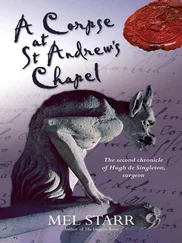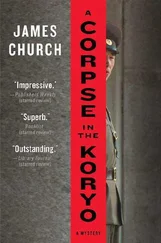So when I bruited the story that Rohinton was helping me prepare for my second attempt at the board exams, they were pleased, and in a smug, self-congratulatory way, never once attempted to check the veracity of my claim. The joke was that Rohinton himself had only just scraped through the finals. A plump, happy-go-lucky fellow with rolls of baby fat still cushioning his neck, forearms and cheeks, Rohinton would have shrieked with merriment had he heard I had cast him in the role of my tutor.
Those were the best moments of my youth, when I could be out in the streets on my own.
Usually, I would escape from the temple precincts as early in the morning as I was able to, without any fixed destination in mind. More often than not — feeling, I suppose, obliged to live out the fiction I had created — I would head in the direction of Mazagaon. Rohinton had a large extended family of siblings, grandparents, cousins, servants and pets, who shared a two-storeyed, many-roomed ancestral bungalow at Mazagaon. The house, which was named Mon Repos , was encircled by a vast expanse of greenery, flowerbeds and moats. It seemed so enormous that I hardly ever met most of the people who, I believed, lived there. I knew that Rohinton’s brothers were much older than he, and worked in offices. I had never met them myself. As for his parents and grandparents, they were very busy people, too. I knew that his father had married twice, first a red-haired Irish woman he met during his student days in England, who gave him one son, and died rather young herself. Later, he married Rohinton’s mother, a Parsi from Karachi, who bore him three more children of whom Rohinton was the youngest.
His father’s eccentric tastes and enormous wealth were on display everywhere inside the house, in the shape of elaborate chandeliers, ornately-framed portraits of his forefathers, a grand marble stairway leading to a living room furnished with expensive Persian carpets, vases from China and a stone sarcophagus that dated back, purportedly, to Roman times. Outside, in the park, under a gazebo, stood a marble bust of Rohinton’s great-grandfather, Framji Kanga, whose adventurous trading in opium and silk during the early nineteenth century had ushered generations of the Kanga family along the path of financial plenitude.
Above all, the park boasted a small private zoo. Among the various animals, the deer and nilgai roamed unhindered, while some others — a porcupine, leopard, orangutan and an enormous python were confined to spacious individual enclosures. There were also three enormous, though gentle, hounds who were allowed to run free in the grounds. A high compound wall circumscribed the large park, heralded by an imposing wrought iron gate.
Mother would have given me two half-anna coins, just enough for my fare on the tram from Gowalia Tank to Mazagaon and back. These were terrific joyrides for me, as the tram slowly trundled through the crowded streets and bazaars of the town. But at the end of my journey to Mazagaon, I didn’t always feel like visiting the Kangas. I felt close to Rohinton, but it was obvious to me that we belonged to different worlds — and I could never feel entirely at ease under the fastidious eyes of so many bearers, stewards and watchmen.
When Rohinton and I tired of our idle diversions: gawking at the animals, teasing them or slyly feeding them when the park warden’s attention was elsewhere — trying, somehow or the other, to hold the animals’ capricious gaze for as long as possible — we played nine tiles, or tried our hand at an abridged version of the game of cricket (all the rage then, what with a largely Parsi cricket team having just returned victorious from the MCC, and Nariman himself, after a business trip to England, bringing home a fine, willow bat for Rohinton; pads, gloves, stumps, a full line of accessories as well). But the absence of playmates shrank our engagements to skeletal proportions — it was always just Rohinton and me, although the hounds were always eager to join in — and even cricket is no fun on such a diminished scale. Finally, tiring of our feeble distractions, we would venture outside, taking long exploratory rambles through the dock areas of Mazagaon.
The pier was so vast and busy no one ever took a second look at what we were about. Usually, we had nothing to do anyway, but lose ourselves in the crowd, look around, wonder, fantasize. Coolies, labourers, mechanics, unemployed layabouts, people waiting to sign up for a job, or a passage — or so we imagined — were everywhere, as were bales of hemp or cotton, great coils of rope, loosely folded sheets of sail-cloth and canvas, barrels, and all kinds of paraphernalia connected with the small and big trawlers and barges that had dropped anchor there, or the merchandise and men they were carrying.
Just to see the small murky cove off Mazagaon, widening into the vast expanse of sea — only partly visible from the pier, yet stimulating enough to my mind’s eye, which didn’t hesitate to fill in every imagined detail. Tall masts with unfurled sails rising above cavernous hulls, the fo’c’sle, or forecastle, where the wild crew bunked — the bo’sun, the coxswain and quartermaster, and other mariners who kept afloat every shape and size of vessel— skiffs, barques, steamers, freighters, trows, and once, we even saw a military frigate. Rohinton had picked up seafarer’s slang from dipping into his father’s paperback collection of adventure tales of the sea, and took vicarious pleasure in awakening in me a great yearning for the sailor’s life. I marvelled often at the putative pleasures of this solitary calling, and wondered if I shouldn’t run away to sea, escaping forever the narrow, claustral world of the fire temple in which I languished.

A hot, hazy day. Perched atop a large heap of crudely chopped logs, casually observing the hustle and bustle of the dockyard, we became aware of an odd-looking man standing some distance away, staring. In fact, you could say he was frowning at us. .who was he? Did he recognize me, perhaps, or both of us? Was he a friend of my father’s, by any chance? Had I ever seen this man among the dozens who visited the temple every day?
Short and fat, he was dressed in an oversized brown suit. When he started walking towards us, we noticed he had a curious start-and-stop gait, punctuated by an imperceptible limp. Rivulets of sweat streaked down his brown face, and lost themselves in overgrown, salt-and-pepper stubble. But the most menacing aspect of the man was, by far, his bulging eyes: bloodshot and popping out of their sockets as though in consequence of some extreme outrage inflicted on him, or of the terribly severe and vengeful moral outlook this had engendered. For one foolish instant, the thought crossed my mind that I should leap off the heap of timber and run as fast as I could, before the fat man got anywhere closer to us. But I didn’t move, and neither did Rohinton. We returned his stare stonily, and waited for him to approach.
‘ Bas . .?’
He gestured quizzically, when he was finally standing in front of us: but for a minute or so after that, kept silent, only regarding us in turn with those truculent eyes, as though wishing to examine us from every possible angle.
‘Well. .? No work-business? No lesson-paani? What do you have to say for yourselves, you loafers?’
The rhetorical intent behind this gruff questioning was evident to us, and we didn’t attempt any reply. His voice was hoarse and he spoke inarticulately, as though with a swollen tongue.
‘It’s obvious that you boys have little, oh- so-little interest in studying, focusing. .’ he said, looking terribly aggrieved, as if wounded by some wanton act of negligence on our part. We continued to gawp dumbly at this stranger; and he in turn to goggle at us with those angry, protuberant eyes.
Читать дальше













